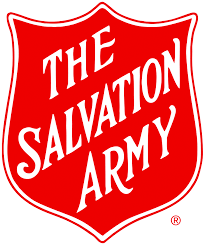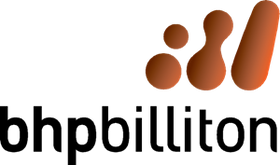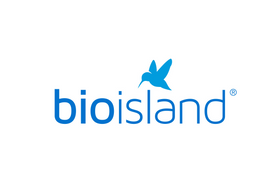Recently viewed
N95 Masks
Wearing a face mask can significantly reduce your chances of inhaling infectious germs and the N95 masks offers protection against inhaling at least 95% of airborne particulates. Originally created for use in industries like construction, the N95 respirators offer a very high form of filtering protection. You may also have heard of them referred to as P2 masks or as KN95 Masks. These different names apply to the various regions that the mask is used in and all refer to the effectiveness of the interior filtration layers.
This type of respiration protective wear is worn over the nose and mouth and fitted to the face with comfortable elasticated straps that can be adjusted and tightened for a firm and snug fit. Across Australia we are all trying to do our best to stop the spread of dangerous germs including the flu virus and coronavirus. If you’re looking for a mouth mask capable of offering protection against inhaling potentially infection germs, of spreading potentially infectious germs, and protection against the inhalation of other particulates like dust and smoke pollution, the N95 Mask is a powerful cloth face covering designed to be comfortable to wear for up to 8 hours.
N95 masks are disposable face masks made from densely woven synthetic polymer fibres produced in a highly specialised process called melt blowing. It is during this melt blowing process that the protective inner layer of the N95 mask is formed. It is this layer which forms the powerful filtration component which is capable of filtering out at least 95% of airborne particles. The effectiveness of wearing N95 masks rely on correct usage, regular disposal of used face shields, and specific positioning on the face. They must entirely cover the nose and mouth, removing any opportunity for unhealthy particles to bypass the filtration layer and be inhaled naturally by the wearer to prevent the spread of disease as well as inhaling hazardous particles like chemical residue, asbestos dust and fibreglass fibres.
How to wear N95 mask correctly
All respiratory protective wear must be worn to the manufacturer’s instructions and guidelines to remain effective. Your face mask needs to be tight-fitting and it must cover the entire nose and mouth, work snuggly against your face. Because of how the N95 Mask must be worn to maintain maximum efficacy, this type of mask may not be suitable for people with facial hair or for small children.
To work well as an antiviral mask and protect you both from spreading disease as well as potentially catching infectious viruses, every breath must occur through the protective layers of filtration within the mask. For this reason, some people may find that wearing the mask for long periods of time is initially uncomfortable. You may find that drawing a normal breath through the filter feels more laboured than a breath without a face covering. This is entirely normal. After you have correctly positioned the mask on your face, wear it for short periods of time in safe environments until you have adjusted to the feel of both the mask on your face and how it feels to breathe normally through the filter. Do not continue to wear your N95 mask if you are experiencing difficulty with your breathing.
It has been noted that viruses like covid-19 are particularly well adapted to spreading in areas of poor ventilation and close, cramped conditions. To assist in reducing the numbers of infected individuals and in slowing the spread of viruses like these, wearing your N95 Masks and other face coverings while out in public is recommended by healthcare workers and the Australian government. In some states it is mandatory to wear some form of face covering whenever you leave your house.
Is the N95 mask reusable?
The N95 respirator, or N95 Mask, is designed to be a disposable air filter mask. Like surgical masks, they must be disposed of after use or you risk the N95 Mask no longer being able to safely filter out potentially harmful particles. When wearing any type of face mask, always follow the manufacturer’s instructions. On average, N95 Masks can be safely worn for up to 8 hours, however, if the interior of the mask becomes moist then it is time to dispose of it and select a fresh mask. This may occur before the 8 hours are up so ensure you regularly check the effectiveness of your mask while wearing it in a public setting.
When disposing of your mask, ensure that the mask is removed in a safe environment – such as your home – and placed directly into your rubbish bin. Masks should not be left lying around after use. If you have been wearing your mask while out in public and are concerned about the safety of the exterior of the mask, dispose of used N95 Masks responsibly and then wash your hands thoroughly afterward. You can use warm water and soap, scrubbing your hands for at least 30 second until a significant lather of soap is created, and then rinse them clean under warm running water.
Finding superior protective wear in times of high demand can be difficult. Sourcing reliable online suppliers of N95 Masks like us will help you purchase bulk quantities for personal and commercial use. Have your N95 Masks delivered directly to your door and reduce the risk of community transmission by limiting how much time you spend in public spaces like shopping centres, grocery shops and your workplace. If you are unable to limit your time in these spaces, then your mask protects you and others while you’re wearing it against the spread of respiratory illnesses.
When you wear a mask in public, you’re doing your part in the fight against community transmission of illness but what else can you do to help flatten the curve and keep yourself and your loved ones safe from infection? We are all being asked to take extraordinary measures to maintain strict and high levels of personal hygiene including regularly washing our hands with warm water and soap, using hand sanitising agents as often as possible, including when we enter and exit shops and other public spaces, as well as maintaining strict social distancing rules. Wearing N95 Masks or other face coverings is the next step in this ongoing struggle and by limiting what we spread and what we can catch, we’re all doing our part.
To ensure that you are getting the most out of your hand sanitiser, ensure that you select a brand which offers you maximum protection. The alcohol content of your sanitizer should be clearly displayed on the product’s label and it should be noted that any sanitiser with less that 60% alcohol is not as effective at removing germs. You can use your sanitiser on your hands as well as on other objects like shopping baskets and trolleys and door handles.
Another preventative measure against potentially infecting yourself with germs is to limit how often you touch vulnerable places on your body like your face while you’re out in public. Wearing surgical gloves such as those worn by healthcare workers is one way of helping you to limit contact with surfaces which may be unsafe. While wearing your gloves, ensure you are still limiting the contact you make with your face and the rest of your body. Dispose of your gloves the same way that you would our N95 Masks – safely and thoroughly.
Shop online now N95 masks as well as a range of sanitising and protective wear designed to help keep you safe.
Wearing a face mask can significantly reduce your chances of inhaling infectious germs and the N95 masks offer protection against inhaling at least 95% of airborne particulates. Originally created for use in industries like construction, the N95 respirators offer a very high form of filtering protection. N95 masks, along with regular usage of rapid antigen tests provides a great platform for protecting yourself and your family















